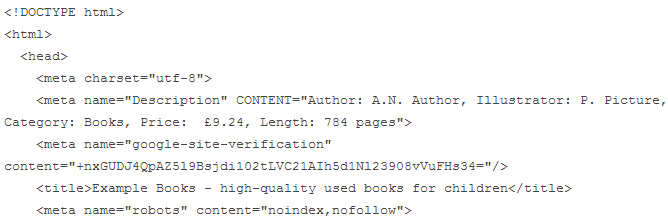Traditionally, search engine optimization (SEO) has been divided into two main areas: on-page optimization and off-page optimization. Off-Page optimization strategy focuses on the things you can do off of your website. For example, link-building and social media, to increase your search engine ranking. We’ll talk more about that in a future blog post. For the purposes of this article we’re going to focus on what on-page SEO is and some tactics for on-page optimization.
On-Page SEO refers to website implementation strategies to optimize position of a website in search results of particular words or phrases. By using different on-page optimization techniques, you can help position your website pages for better ranking for specific keywords or phrases.
It’s important to note that, while using on-page optimization tactics may help Google determine which keyword or phrase is most relevant on your page, in the end, it all comes down to content. There are no shortcuts or replacements for providing authentic content to your audience. Google continues to optimize it’s algorithm and eventually, cheaters will be caught and their websites penalized.
Here are some on-page optimization techniques you can use:
URL
URLs describe a site or page to visitors and search engines. By making sure your URLs are relevant, compelling, and semantically correct, your page is more likely to get search engine-referred traffic due to the keywords in the URL. As an added benefit, well-written URLs can serve as their own anchor text when copied and pasted as links on other sites.
Let’s look at an example:
- PC Magazine – http://www.pcmag.com/article2/0,2817,2372777,00.asp
- Digital Photography Review – http://www.dpreview.com/reviews/canoneos60D
The URLs above were retrieved by doing a search for “Canon EOS 60D Camera Reviews.” Just at a glance, which URL tells you more about the page? The Digital Photography Review link is not only more relevant, but it came up first in the search results. Coincidence?
Page Title
Title tags define the title of a given page. They are displayed both in the browser title bar as well as on the search engine results page (SERP).

Pictured Above: Title Tag as it appears in the Browser (Mozilla Firefox)

Pictured Above: Title Tag as it appears on Google’s Results Page
Title tags should be no more than 120 characters, but 50-60 characters is considered optimal.
<Meta> Tags
<Meta> tags provide search engines and other clients with information about their sites. Each system processes only the <meta> tags they understand and ignore the rest. These tags appear in the code of a particular page but are not visible to the person browsing the site. Here is an example of how <meta> tags look in HTML:

Example Meta Tags (courtesy of Google.com)
There are many different types of <meta> tags and a complete list can be found on whatwg.org. However, if you only focus on one, make sure it’s the description. The description attribute within the <meta> tag is a good way to provide a concise, human-readable summary of each page’s content. Google will use the description on the search results page. A well written description can help improve your click-through rate.
Open Graph Tags (OG Tags)
The Open Graph protocol enables any web page to become a rich object in a social graph. There are many types of metadata that can be added to your page. For the full list, visit http://ogp.me/.
Let’s look at a quick example. The image below was taken from a Mashable.com article about Star Wars: Episode VII. As you can see, it displays the headline and a picture of Kevin Smith.

The behind-the-scenes code for this page contains the following OG Tags:

When this link is pasted into a Facebook status update to be displayed on a timeline, Facebook generates the rich media object pictured here:

Different social networks may use different open graph tags, so the results will vary across these networks. However, as you can see, using these tags creates a more engaging link and can help with off-page SEO as well as on-page SEO.
Read Part 2: On-Page SEO and Optimization Tactics.
You may also interested in:

